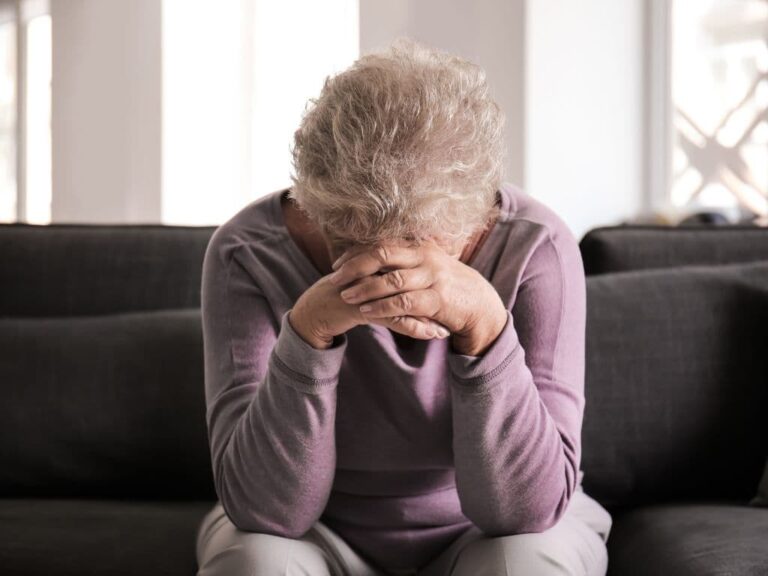Hormones That Cause Women to Gain Weight After 60 — and How to Shed the Pounds
Old age comes with natural changes in the body that can be difficult to control. In particular, older women may have difficulty losing weight because they lose muscle mass and their metabolism slows down. This makes it harder to shed pounds even with regular exercise and a healthy diet.
However, it’s important to note that weight gain can also be caused by hormonal changes that come with age. Their effects are complex, but understanding them is essential for effective weight management.
Which hormones cause women to gain weight after 60? After 60, three key hormones can contribute to weight gain: estradiol, cortisol, and leptin. Estradiol decreases with menopause, causing metabolism and weight regulation to become harder. Cortisol, the stress hormone, is produced in higher levels in older women causing increased appetite and cravings for unhealthy food. Leptin, the hormone that regulates appetite, becomes more resistant to the body as it ages, leading to increased fat storage and slow metabolism.
Read on to learn more about these hormones and what you can do to keep your weight healthy.

What Hormones Cause Weight Gain in Older Women
Estradiol
When a woman undergoes menopause, many hormonal changes in the body occur. One particular estrogen hormone, estradiol, decreases dramatically. This hormone regulates metabolism and weight, so once it declines, it naturally makes weight loss harder for women.
Whereas you might typically gain weight around your thighs and hips when you were younger, you may now notice more weight gain in your midsection.
Cortisol
Cortisol is known as the “stress hormone” since its production is triggered by stress. Medical experts explain that cortisol, which causes weight gain, can be worsened by conditions like depression, insomnia, and Cushing’s disease.
However, as people grow older, the production of cortisol naturally increases, with levels rising higher in older women than older men. This can disrupt fat and carbohydrate metabolism, causing more energy to be used in your body.
As such, it increases your appetite. In particular, you may be prone to crave sweets and fatty or salty foods, increasing the likelihood of gaining weight.
Leptin
Leptin is critical for regulating appetite. When you have enough fat stores for energy, leptin signals the brain that you don’t need to eat more. In this way, it balances your food intake and energy expenditure.
However, as people age, the body becomes more resistant to leptin. This means you crave food even if you have enough fat stored in your body.
And since your brain thinks you’re hungry, it will slow your metabolism when you’re at rest, so you’re not continuously burning energy. This effectively makes it more challenging to lose weight.
How can older women shed pounds?
Make dietary changes
As you age, following standard dietary guidelines for weight management is more critical than ever. This means eating fruits, vegetables, and whole foods. It’s also best to avoid processed foods with added sugar or sodium.
However, since your body will have more trouble retaining muscles, you should supplement this by eating more lean meat for protein.
You can also address a slowing metabolism by ensuring your body continuously burns calories, which can be done by eating small snacks or meals frequently, so your metabolism is always working.
Avoid stress
Since cortisol levels are often higher in older women than men, you should look for ways to relieve stress. You can do this by seeing your friends and family frequently or engaging in community efforts to build more relationships.
You can also unwind with activities you enjoy or find relaxing, like reading, getting a massage, or practicing meditation. By managing stress, you lower cortisol levels that challenge weight loss.
Exercise regularly
Older women should observe regular exercises to help their bodies build muscle and continue burning more calories.
In fact, the CDC states that physical activity for older adults is essential to healthy aging. They recommend having 150 minutes of moderate exercises like brisk walking or 75 minutes of vigorous activities like running or jogging weekly.
It would be best to have muscle-strengthening activities to build muscle mass. This helps boost your metabolism to combat the effects of hormonal imbalances in old age.
Seek medical advice
Since weight loss isn’t a one-size-fits-all solution, consulting a health professional helps you develop a plan that considers complex aspects of your health.
These professionals can guide you through medical weight loss plans, where they may prescribed FDA-approved medications for weight management, like bupropion-naltrexone or orlistat, which suppress your appetite.
This is meant to complement your healthy lifestyle while addressing more complex health factors such as hormonal imbalance or other health conditions prevalent in old age. It can also benefit older people with greater leptin resistance, which causes a greater appetite.
Hormones make weight loss more difficult for older women. But you can still shed a couple of pounds with these simple lifestyle changes.







